Tanner Pearson has had himself quite the last two months playing for the Vancouver Canucks.
He’s arguably been one of Vancouver’s best forwards as I’ve discussed previously. Not to mention that he’s better than anybody else in the entire NHL in one statistic – empty-net goals.
So, what’s the problem with that?
Currently, there is none. However, Pearson’s contract expires after next season which alludes to an impending salary cap predicament on the horizon.
Crucial Offseason Approaching
The 2021 offseason proves to be one of colossal significance for the Canucks, as their priority will undoubtedly be locking up their two young phenoms in Quinn Hughes and Elias Pettersson
Collectively, Hughes and Pettersson could occupy as much as $17 to $19 million in cap space.
Pearson’s current cap hit of $3.75 million is a bargain right now for the Canucks, as he is proving to be the most productive second-line winger the team has had in years. His 2.7 points per 60 minutes and average ice time of 16:25 ranks him amongst a group of players like Brayden Schenn (18:26 TOI/game, 2.68 PP/60), Jonathan Marchessault (17:16 TOI/game, 2.44 PP/60) and Reilly Smith (18:06 TOI/game, 2.48 PP/60). Those players have an average cap hit of $5.5 million if you include Schenn’s new deal that kicks in next year.
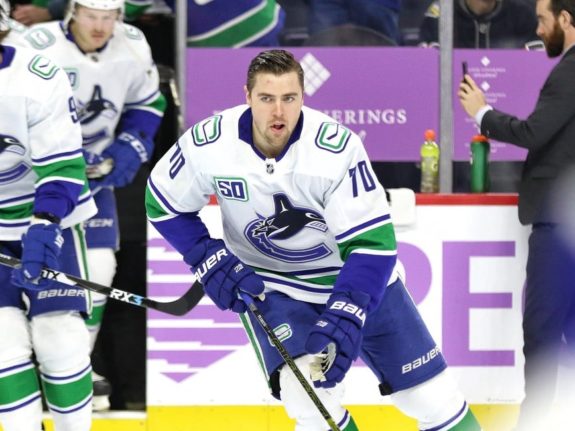
It becomes clear that Pearson will be due for a raise in salary after this current contract expires and I believe his asking price will be around this number or higher, with decent term.
Options for Pearson
There are two ways in which I imagine Pearson’s camp will treat free agency.
The Kitchener native will be 28 years old once his contract expires, and is in the prime of his career. Logically, this is his best opportunity to cash in on what might be the most lucrative contract of his playing career. He’s had a career year and has an opportunity to back it up or even improve upon it next year.
Pearson’s stock is at an all-time high and many teams will come knocking. Signing with a Canadian team like the Canucks means paying higher income taxes than playing in a state with lower or even no state income taxes like Florida. These little differences add up for players when making a life-altering decision.
Alternatively, Pearson’s current assembling with Vancouver isn’t one to complain about. He rides shotgun with one of the league’s best second-line centers in Bo Horvat and the two have impeccable chemistry together. Further, Pearson plays a premier role on a playoff-contending team. From a pure hockey standpoint, there is not much more you can ask for.
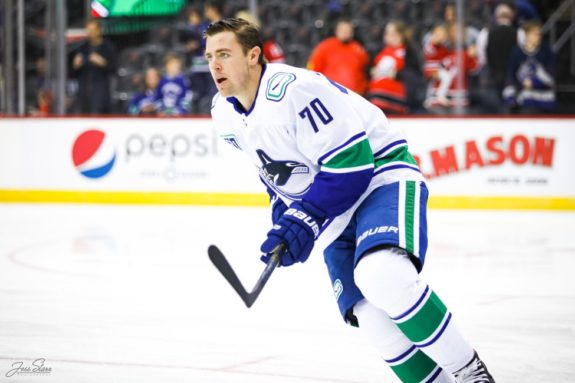
It is noteworthy to realize that if Pearson were to re-sign with Vancouver before his contract expires, he could possibly be left unprotected in the Seattle Expansion Draft in 2021. Surely, the Canucks younger core of forwards will be protected. While Pearson certainly isn’t old, he also might be too expensive once the Canucks hit their championship window. Most of the Canucks’ core forwards are 24 and younger, meaning it may still be some time before they become legitimate Stanley Cup contenders.
Those legitimate Cup-contending teams are able to consistently find younger players coming up in the system that fill NHL roles while outperforming their entry-level contracts to provide cap relief. I like the St. Louis Blues as an example for a team that has excelled at this – Jordan Binnington, Vince Dunn and Robert Thomas all provided the Blues with quality performances during their Cup run while playing on their ELC’s (or a cheap contract, in Binnington’s case).
Options for Vancouver
Perhaps the Canucks could find a bargain or two within their own system. Jake Virtanen has produced at an even higher rate than Pearson at 2.84 points per-60 minutes and has shown considerable growth this year. Prior to his injury, Josh Leivo demonstrated his ability to generate chances with impressive Corsi-For and Scoring Chance For percentages of approximately 52, and he’s a left-winger just like Pearson.
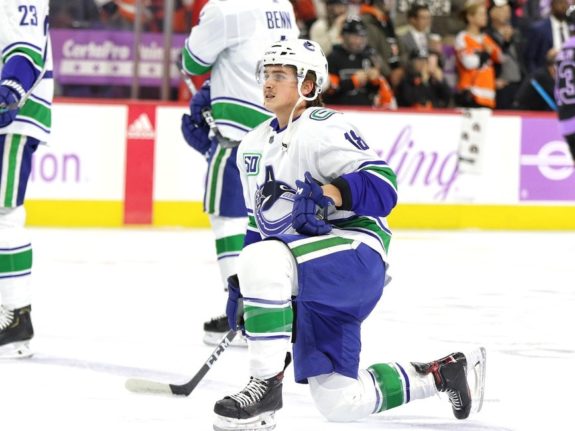
Both have earned consideration for more ice time moving forward and are due for extensions this summer. I would assume both sign for cheaper deals compared to Pearson.
The Canucks depth is as deep as it has been in years. Kole Lind continues his impressive sophomore campaign in the AHL with 38 points in 46 games and will get a shot at making the Canucks opening night roster next October. Lind is also due for an extension in 2021 but will be very cheap given his inexperience.
Further along the line are wingers Nils Hoglander and Vasili Podkolzin. Both are playing against men in the top league of their respective countries. Some scouts believe that Podkolzin could slot into the top-six of an NHL team very soon. However, his KHL contract still has another year remaining on it.
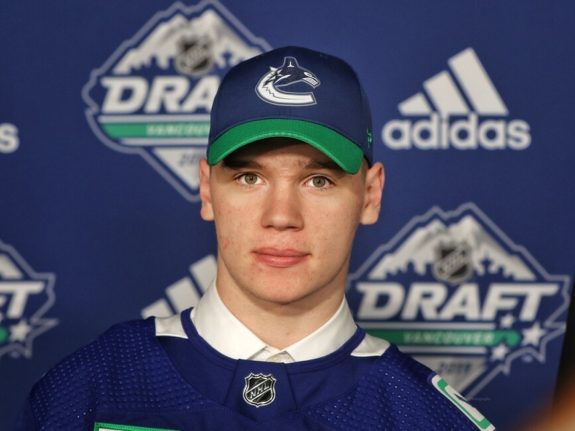
With the Canucks currently in the heat of an intense playoff race, it would be shocking to see Pearson moved before the end of the year given how instrumental he has been to this team’s success.
There are three scenarios I can see playing out – an offseason/midseason trade, the Canucks holding on to Pearson for a playoff push, or general manager Jim Benning working magic in the negotiations.
Acquiring assets for Pearson in the offseason, or midway through next season, would be capitalizing while his value is at an all-time high. This way he is not lost for nothing in free agency or the expansion draft one summer later.
If Benning and his staff do not believe that one of the aforementioned players are able to fill Pearson’s role, this might be the option forced upon the team. The Canucks have a competitive team and can always use Pearson’s services until he declines, however, the risk of losing him for nothing would be disappointing.
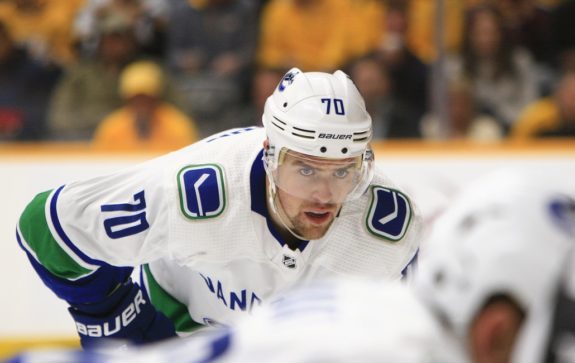
With barely any cap space currently available and even less once Hughes and Pettersson are signed, overpaying for free agents to fill Pearson’s role seems unlikely. Even less likely is Pearson taking an extremely team-friendly deal to remain in Vancouver. Who knows, maybe newly appointed assistant general manager Chris Gear can work some magic.
It looks to me like the best option is to ride it out until next season. It’s possible that Vancouver has a down year in 2020-21 and Pearson becomes a rental player by the trade deadline. Or, perhaps Pearson regresses and depreciates his contract value, making him affordable. If the Canucks make playoffs and Pearson is killing it, Canuck fans should appreciate it while it lasts because come July, he’ll be gone.